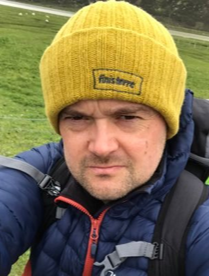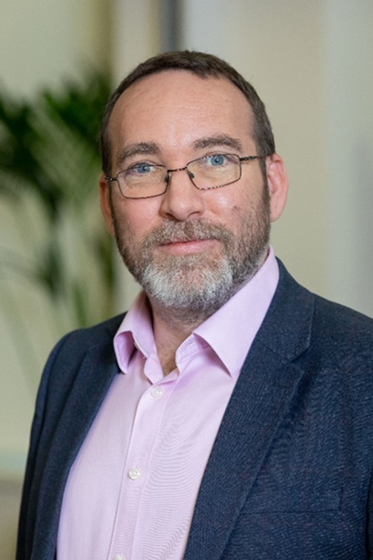Artificial Intelligence London Division Spring Conference 2024
London Division Spring Conference 2024
| Timings | 9:30 AM - 2:30 PM |
| Location | , Online |
| CPD | 1 CPD point per hour of content, subject to peer approval |
| Non-Member | £112 |
|---|---|
| Consultant | £84 |
| Higher Trainee / SAS Doctor | £62 |
| Core Trainees / Subsided / Retired / Medical Students / FY Doctors | £39 |

Event Information
Event overview
The London Division Spring Conference 2024 will focus on the topic of Artificial Intelligence and will focus on:
- The uses of AI, historical uses and the current applications.
- What can Artificial Intelligence learn from the Brain / Neuroscience?
- What can the brain learn from AI?
- How can AI transform Psychiatry: Opportunities and Challenges
Event programme
| Time | Presentation |
|---|---|
| 9.25am | Virtual room opens |
| 9.30 – 9.40am | Welcome Dr Stefania Bonaccorso, RCPsych London Division, Academic secretary |
| 9.40 – 10.20am | Use of AI in clinical settings: historical perspective and current applications Joint talk Professor Daniel Joyce, University of Liverpool Dr Nick Gray, University of Liverpool |
| 10.20 – 11.00am | What can artificial intelligence learn from the brain or neuroscience? Professor Caswell Barry, University College London |
| 11.00 – 11.15am | Comfort break |
| 11.15 – 11.55am | What can the brain learn from AI? Professor Ing Ren Tsang, University of Pernambuco |
| 11.55 – 12.35pm | How can AI transform psychiatry: opportunities and challenges Dr Andrey Kormilitzin, University of Oxford |
| 12.35 – 1.05pm | Lunch break |
| 1.05 – 1.45pm | A more human artificial intelligence... TBC Dr Guy Northover, Berkshire Healthcare NHS Foundation Trust |
| 1.45 – 2.30pm | Panel discussion Chaired by Dr Stefania Bonaccorso, RCPsych London Division, Academic secretary and Dr Soloman Wong, Central and North West London NHS Foundation Trust |
| 2.30pm | Event close |
Speakers
We are delighted to welcome the following speakers
Professor Daniel Joyce – University of Liverpool
I'm a psychiatrist and data scientist interested in how we can make use of data-driven technologies to better understand mental illness. My work looks at how we can use methods from statistical- and machine-learning in prosaic ways to deliver actionable insights to patients and clinicians.
Topics I have a particular interest in include a) defining what transdiagnostic phenotyping means and how it can be achieved using clinical data that may be at best, first-approximations (or proxies) for traditional diagnostics and syndromes b) unobtrusive and low-burden measurement and tracking of clinical and health states using technology c) how to capture aspects of clinical decision making so that data-driven technology (like artificial intelligence) can be aligned with clinical practice.
I spend much of my time working on delivering two work packages for the Mental health Research for Innovation Centre - specifically, Innovative Therapies for Mood Disorders and the Mental Health Avatar
Professor Caswell Barry – University College London 
Prof. Caswell Barry joined UCL’s Cell and Developmental Biology department in 2013, previously being based at the Institute of Neurology with Prof. Neil Burgess. His goal is to build a computational understanding of the neural basis of memory. In other words, explaining how a network of neurons in able to store, update, and retrieve information about the world and events that happen within it.
To this end he studies spatial memory and its representation in the hippocampal formation. His lab uses tools such as computational modelling and machine learning in conjunction with a variety of experimental techniques to understand how the processes of memory formation and retrieval are triggered.
Professor Inden Tsang – University of Pernambuco
Tsang Ing Ren received the B.Sc. degree in electronic engineering from the Federal University of Pernambuco, Recife, Brazil, and the Ph.D. degree in physics from the University of Antwerp, Antwerp, Belgium. He is currently an Associate Professor with Center for Informatics, Federal University of Pernambuco. His research interests include machine learning, image processing, computational photography, computer vision, and deep learning.
Professor Andrey Kormilitzin – University of Cambridge
 Dr Guy Northover – Consultant Child and Adolescent Psychiatrist, Lead Clinical Director and CCIO, Berkshire Healthcare NHS Trust.
Dr Guy Northover – Consultant Child and Adolescent Psychiatrist, Lead Clinical Director and CCIO, Berkshire Healthcare NHS Trust.
Dr Guy Northover is a Consultant Child and Adolescent Psychiatrist in Berkshire where he works clinically within the early ntervention in psychosis team. He is the Trusts Lead Clinical Director, managing the 7 clinical directors across all community physical and mental health services In Berkshire, Guy is the Chief Clinical Information Officer and Clinical Safety Officer for the trust, holding responsibility for the digital strategy and clinical engagement along with the quality and safety of all the trusts digital health systems. Nationally Guy is the National Clinical Lead for the Getting It Right First Time project for Children and Young People which is identifying and rectifying unwarranted variations in care.
He is part of the NHSE specialist commissioning Clinical Reference Group. Guy is the Finance Officer for the faculty of Child and Adolescent Psychiatry and undertakes the role of Faculty Quality Improvement Lead. attends the Informatics committee Guy is a cofounder of a successful digital startup that uses AI to drive the efficiency, effectiveness and quality of mental health assessment and treatment pathways.
Can't attend on the day?
Please kindly note, this session will be recorded and the recording made available within two weeks of the event.
We would encourage those who register to attend on the day of the event, should they wish to ask questions to our speakers.
All recordings are sent out to delegates via email to the email address used at the time of registering. If you are unsure whether your email address is up to date, please update this via your membership account.
Technology requirements
This event is taking place online via Zoom. To take part you will need:
- access to a reliable internet connection
- a PC, laptop, tablet or phone
- Google Chrome or Microsoft Edge browser or Zoom installed on your PC, laptop, tablet or phone.
Please note: It is up to the participant to ensure that they have the correct requirements in place prior to booking the event.
Joining instructions for the event will be sent out the week of the event.
Terms and conditions
For further information, please contact:
Email: division.events@rcpsych.ac.uk
Contact Name: Division Events Team
Contact number: 0208 618 4261

